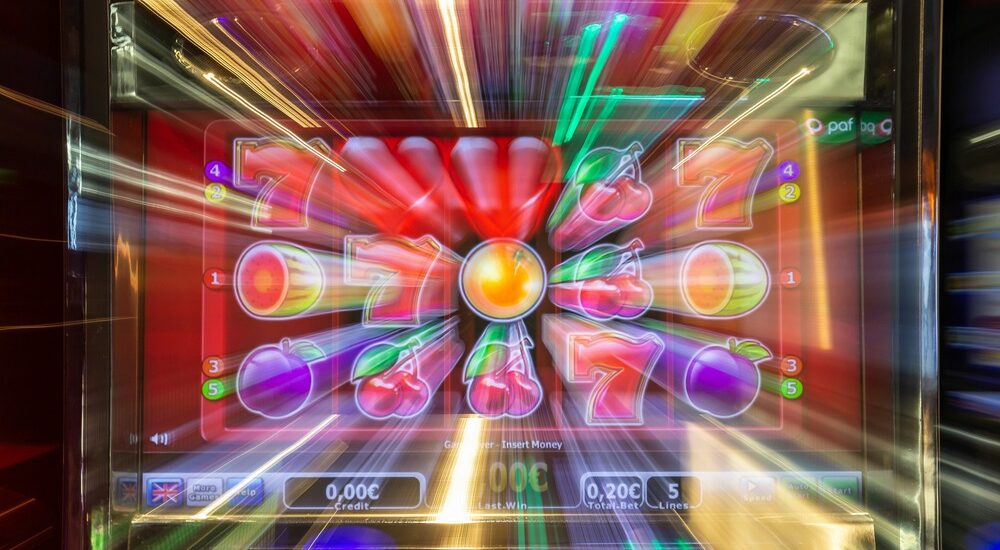When examining the evolution of slot machines from their mechanical origins to the digital landscape, it is evident that these advancements have significantly impacted the gaming industry. Transitioning from the manual operation of traditional one-armed bandits to the virtual realm of online slots has introduced various innovations and challenges. This technological progression has altered the way players engage with these iconic machines, offering greater convenience and accessibility.
The shift towards digital slot machines has enabled players to enjoy a wider range of games with enhanced graphics and interactive features. Online casinos have also provided a platform for players to access their favorite slots from the comfort of their homes, eliminating the need to visit physical casinos. Moreover, the introduction of random number generators (RNGs) in digital slots has ensured fair gameplay and increased transparency.
Looking ahead, the future of slot gaming enthusiasts appears to be intertwined with further technological advancements. Virtual reality (VR) and augmented reality (AR) technologies are being explored to provide a more immersive gaming experience. Additionally, mobile compatibility and the integration of cryptocurrencies are expected to shape the future of slot gaming.
In conclusion, the evolution of slot machines from mechanical to digital has revolutionized the gaming industry, offering players a more diverse and convenient gaming experience. As technology continues to evolve, the landscape of slot gaming is likely to undergo further transformations, catering to the changing preferences of players.
The Birth of Mechanical Slot Machines
In the late 19th century, mechanical slot machines were introduced, representing a significant development in the history of gambling. These early machines were engineered with levers, gears, and spinning reels. Players would activate the machine by pulling a lever, setting the reels in motion and awaiting the outcome.
The anticipation of seeing symbols align for a potential winning combination drew many individuals to these machines. They marked a shift in entertainment, offering a blend of luck and skill in a new form of leisure activity. Similar shift can be seen nowadays with the transition to video slots from earlier traditional ones.
The sound of coins clinking as payouts were dispensed signaled the start of a gaming revolution that has since progressed and diversified. It even continues progressing with the introduction of Virtual Reality Slot machines.
Advancements in Slot Machine Technology
The evolution of slot machine technology has been driven by a continuous quest for innovation. Video slots, a significant development in this evolution, replaced physical reels with virtual ones displayed on a screen. This transition allowed for more sophisticated graphics, animations, and bonus features, enhancing the overall player experience.
The incorporation of random number generators (RNGs) ensured fair gameplay by generating unpredictable outcomes for each spin. Moreover, the introduction of ticket-in, ticket-out (TITO) technology streamlined the gaming process, enabling players to easily cash out their winnings. These advancements have modernized slot machines and played a key role in shaping the gambling industry.
Transition to Electronic Slot Machines
The transition to electronic slot machines represented a significant advancement in the gambling industry’s technological landscape. These machines introduced several key features that transformed the traditional slot experience:
- Digital displays with vivid graphics and animations provided a visually engaging gameplay environment.
- Touch-screen interfaces replaced mechanical levers, offering a more user-friendly and modern interaction method.
- Advanced random number generators were implemented to ensure fairness in gameplay outcomes and enhance unpredictability.
Rise of Video Slot Machines
The introduction of video slot machines marked a transformative development in the gambling industry. These machines departed from traditional slots by incorporating advanced graphics, interactive bonus features, and immersive sound effects. Players were drawn to the engaging gameplay and dynamic animations offered by video slots.
The transition from mechanical reels to virtual screens allowed for the introduction of a wider range of themes and innovative features, enhancing the overall entertainment value for gamblers. Video slot machines gained popularity in casinos globally, particularly among a younger demographic attracted to the modern technology and improved gaming experience.
This shift signaled a significant evolution in slot machine design, paving the way for further advancements in the digital gaming sector.
The Era of Online Slot Games
Online slot games have become a popular form of entertainment in the digital era. These games offer a virtual casino experience with various visual and audio elements to enhance the gameplay. Players can choose from a wide range of themed slot games, covering topics like ancient civilizations and futuristic settings.
Interactive features such as bonus rounds, free spins, and multipliers add excitement and engagement to the gameplay. Overall, online slot games provide a convenient and accessible way for players to enjoy casino-style entertainment from the comfort of their own homes.
Conclusion
The evolution of slot machines has seen a significant transformation from mechanical models to digital versions. The traditional lever-operated machines with spinning reels have been replaced by modern interactive video slots that offer enhanced features and gameplay. This technological advancement has revolutionized the gaming experience, catering to a wider audience with varying preferences.
Players now have the option to choose between the classic appeal of mechanical slot machines and the convenience of online slots accessible from various devices. This diversification in the slot machine industry has expanded the entertainment options available to players, creating a more dynamic and engaging gaming environment.
As technology continues to progress, the future of slot machines may see further innovations and enhancements. While it is uncertain what specific developments will emerge, it is likely that the focus will remain on improving player experiences, incorporating more advanced features, and adapting to evolving consumer preferences. The evolution of slot machines is an ongoing process driven by technological advancements and player demand, shaping the landscape of the gaming industry.

